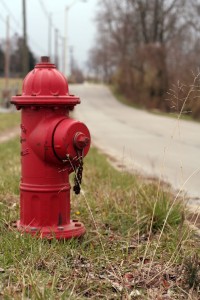To Drill Wells in Norman, Company Buys City Drinking Water Right From the Hydrant
-
Joe Wertz
For a fee, most municipalities will give contractors and other industrial users a special water meter and temporary access to a city fire hydrant. The meters and hydrant access are often used for construction sites, and the buyer usually pays a higher per-gallon water rate for the high-flow access.
But there’s an unusual industrial customer buying water from the City of Norman, The Journal Record’s Sarah Terry-Cobo reports: Finley Resources, a Texas drilling company that’s using the water for a horizontal drilling operation:
While it’s not clear how much water Finley and its contractors use, no ordinance specifically prohibits the city from selling drinking water for industrial purposes. Ward 2 City Councilman Tom Kovach said if a business wants to purchase water for a construction project, the staff wouldn’t make a judgment call to deny a permit if an ordinance doesn’t specifically prohibit it.
He said he was unaware of the city selling drinking water to a driller until he received calls from The Journal Record.
Oklahoma’s ongoing drought has intensified discussions about appropriate water use, and most of Norman’s water comes from wells and Lake Thunderbird. The city can also buy water from Oklahoma City, if it’s needed, which it’s done for the last three years, Terry-Cobo reports.
The City of Norman has enacted “moderate” mandatory water conservation measures due to the drought and low lake levels, which restrict activities like lawn plant-watering and car-washing.
Other drillers are recycling and reusing frack water, or use non-potable sources for the drilling technique, which contaminates the water with chemicals and sand, Terry-Cobo reports.
“We do have concerns about water, so we are going to be looking into how we can modify our water conservation ordinance when we hit certain stages of drought,” Kovach said.
He said he and other city staff members are concerned about using potable water for drilling. The city is trying to reduce potable water use. It has projects to reuse non-potable water on such places as golf courses and to clean trucks at the water reclamation plant. The city had to shut down 15 drinking water wells because naturally occurring arsenic exceeded federal safe drinking water regulations.
Clarification: The company is drilling the well, but hasn’t started the hydraulic fracturing process.

